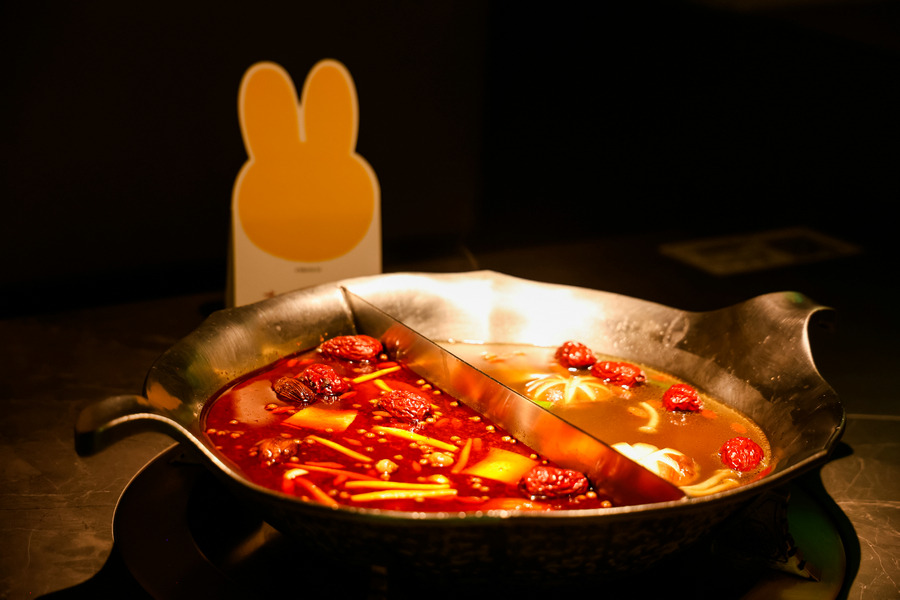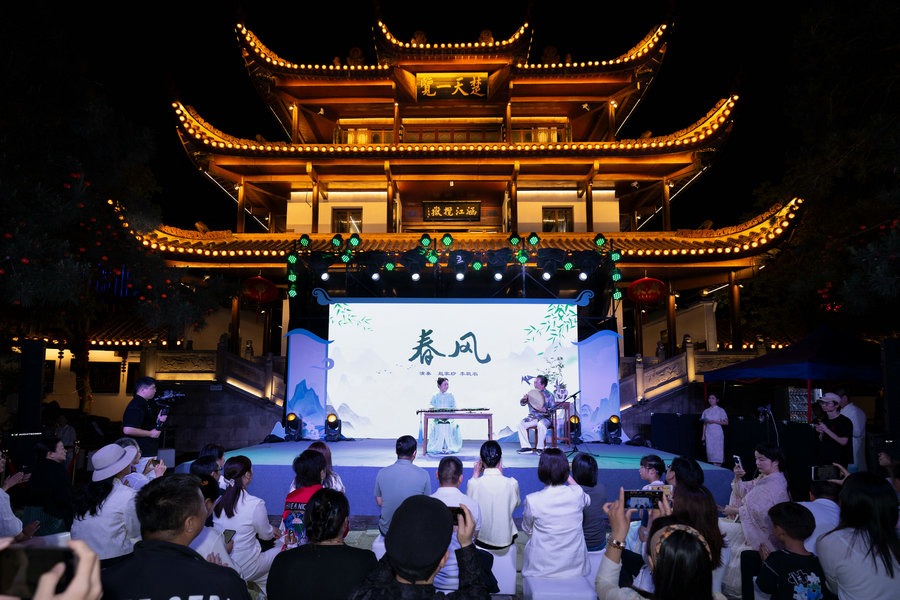A legacy that spans centuries


Writer, statesman and gourmet remains a celebrated figure of inspiration, Chen Bowen reports in Danzhou, Hainan.
Nearly a millennium after his death, the legacy of Su Shi, China's beloved writer, statesman and gastronome, continues to thrive on the tropical island of Hainan province.
Exiled to the island in the summer of 1097 during the political turmoil of the Song Dynasty (960-1279), the then-60-year-old scholar spent his final years transforming adversity into cultural triumph. Today, his name adorns museums, culinary staples and blockbuster theater shows, cementing his status as Hainan's most enduring "celebrity".
When Su, also known as Su Dongpo, after his courtesy name, arrived in Dan'er, today's Danzhou city, Hainan was a remote frontier, far removed from the intellectual hubs of central China. Yet over three years, the polymath penned 170 poems and 160 essays, and completed his famed Commentary on the Book of Documents, Commentary on the Book of Changes and Explanations on the Analects of Confucius. He introduced agricultural techniques, promoted education, and prescribed herbal remedies, leaving an imprint so profound that locals still affectionately call him "one of our own".
"I am but a native of Dan'er, who happened to be born in Sichuan," Su once wrote, a line now etched into the collective memory of Hainan.
"The fact that Hainan, an island once considered remote, could nurture a cultural legacy that profoundly influenced the rest of China speaks volumes about its people's character," says Leng Chengjin, a professor at Renmin University of China.
"Had the residents of Danzhou not shown such exceptional warmth and moral integrity, Su's three-year exile here would never have yielded such enduring cultural contributions," Leng notes, emphasizing how local hospitality helped transform the scholar's hardship into a creative renaissance.
Following the ongoing fourth national census of cultural relics, Hainan has systematically cataloged its cultural heritage linked to Su Dongpo, identifying 13 cultural heritage sites related to the historical figure, according to province authorities.
Long before notions of equality became modern ideals, Su practiced them in the back roads of Hainan.
The statesman embraced the island's indigenous Li ethnic people with his philosophy that "Han and Li ethnics share one humanity", a radical view in ancient China. Eyewitness accounts describe local children giggling "Uncle Dongpo!" as he wandered mountain paths.

At the newly opened Guanglang Temple Memorial Hall, which recreates his exile's pivotal site, visitors trace Su's footsteps through exhibitions with poetic titles such as Life Is Like a Journey, Wringing My Scarf, Inviting Drunken Friends and Boundless Spring Winds from the Sea.
The exhibits showcase his impact on local customs, farming and ethnic unity. The site, built near the ruins of Su's thatched hut, features Song Dynasty-style architecture and replanted groves of arenga westerhoutii trees, recreating the landscape he described in verse: "Bamboo shadows dance in the morning light; this humble fence holds my boundless delight."
In Chinese, arenga westerhoutii trees were called guanglang, explaining the origin of the name of the temple.
"We've reconstructed Su's daily life here based on historical records," says Sheng Yun, deputy general manager of the Danzhou Tourism and Culture Investment Development Group, pointing to the newly planted grove of arenga westerhoutii trees and thatched-roof structures at the memorial hall.
Archaeologists also spent two years excavating the original site, unearthing more than 20 artifacts, including Song Dynasty ceramics and coins.
Su's letters to his son Su Mai reveal a man who found joy even in hardship, particularly through food. "The locals call these 'oysters'," he wrote in a playful note. "Roast them in coals — divine! But tell no northerners, lest they swarm here."

































